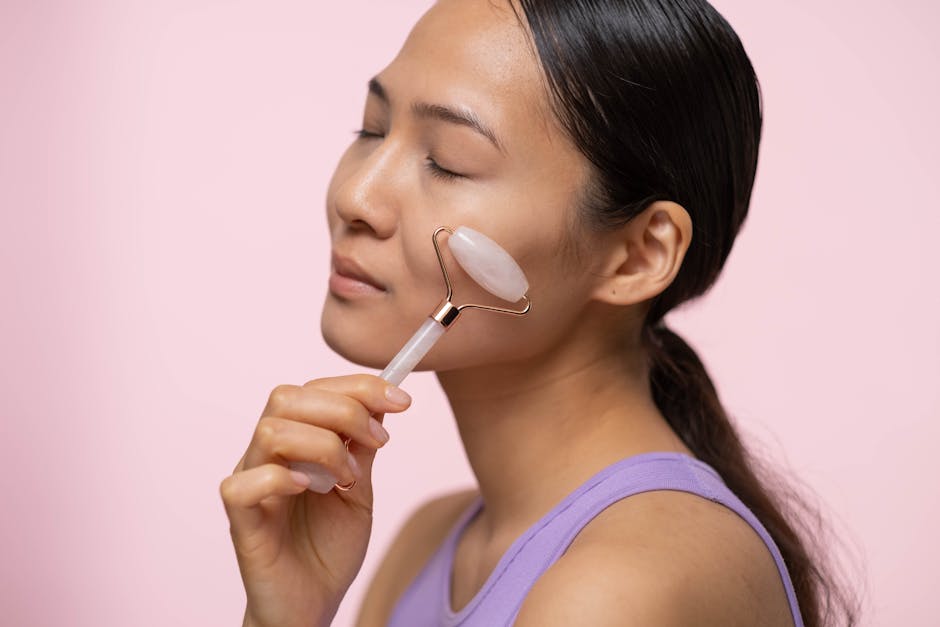Embarking on a journey to unlock the secrets of maintaining a robust immune system through the maze of aging is both fascinating and crucial. Aging and immune health are closely intertwined, and understanding this link can be the key to promoting a healthier and more resilient immune system. Join us as we delve into how anti-aging techniques play a pivotal role in enhancing the body’s defense mechanisms against illnesses and infections.
Understanding the Link Between Aging and Immune System Health
Aging not only graces us with wisdom and experience but also poses challenges to our immune system. As we age, our immune response tends to weaken, making us more susceptible to infections, diseases, and slower healing processes. Chronic conditions like inflammation can exacerbate these effects, highlighting the importance of actively supporting our immune defenses throughout the aging process.
One critical aspect of aging is the gradual decline in thymus function, a key organ for immune cell maturation. This decline can lead to a reduction in the production of T cells, essential for a robust immune response. By understanding how aging affects our immune system at the cellular level, we can proactively implement strategies to counteract these effects and promote immune system resilience.
Moreover, the phenomenon of immunosenescence, the aging of the immune system, can result in dysregulation of immune responses, leaving the body vulnerable to infections and autoimmune disorders. Exploring the intricate interplay between aging and immune function unveils opportunities to leverage anti-aging interventions to bolster our body’s defense mechanisms and overall well-being.
To combat the effects of aging on the immune system, adopting a holistic approach that includes healthy lifestyle habits, targeted nutrition, regular exercise, stress management, and quality sleep is paramount. These pillars of anti-aging can synergistically enhance immune system health, paving the way for a thriving and resilient defense system against external threats.
In essence, understanding the complexities of aging and immune system health provides a roadmap for integrating anti-aging techniques into our daily routines. By harnessing the power of knowledge and proactive measures, we can navigate the aging process with grace and vitality, empowering our immune system to function optimally in the face of evolving challenges.
The Role of Nutritional Support in Boosting Immunity
Nutrition plays a pivotal role in modulating immune responses and sustaining overall health, especially as we age. The consumption of a well-balanced diet rich in nutrients, vitamins, and antioxidants is essential for supporting immune system function and cellular repair processes.
Certain micronutrients, such as vitamin C, vitamin D, zinc, and selenium, have been identified for their immune-boosting properties and ability to combat age-related immune decline. By incorporating these nutrients into our diets through whole foods and supplements, we can fortify our immune defenses and promote longevity.
Additionally, the gut microbiome, a complex ecosystem of microorganisms in the digestive tract, plays a crucial role in immune regulation and overall health. Consuming probiotic-rich foods and prebiotics can nurture a diverse and balanced gut microbiota, supporting optimal immune function and reducing the risk of age-related immune impairments.
Furthermore, adopting an anti-inflammatory diet, including foods high in omega-3 fatty acids, turmeric, and green leafy vegetables, can mitigate chronic inflammation, a key driver of immune system aging. By fueling our bodies with nutrient-dense foods that promote cellular rejuvenation and immune resilience, we can strengthen our defenses against the detrimental effects of aging on immunity.
Exploring Exercise as a Vital Component of Immune System Enhancement
Physical activity is not only crucial for maintaining cardiovascular health and muscle strength but also plays a significant role in bolstering immune defenses, particularly as we age. Regular exercise has been shown to enhance immune cell function, reduce inflammation, and improve overall immune system vigilance.
Engaging in moderate-intensity activities such as brisk walking, cycling, or swimming can stimulate the production of white blood cells, antibodies, and natural killer cells—key players in immune surveillance and infection control. This multifaceted immune-boosting effect of exercise underscores its importance in promoting immune system resilience and longevity.
Stress Management: A Key Player in Supporting Immune Health
Chronic stress can have profound implications for immune function, contributing to immune dysregulation, inflammation, and increased susceptibility to infections. As we age, effectively managing stress becomes essential for maintaining a balanced immune response and overall well-being.
Practicing stress-reduction techniques such as mindfulness meditation, deep breathing exercises, yoga, and tai chi can help mitigate the deleterious effects of stress on immune health. By cultivating a sense of calm and resilience, we can empower our immune system to function optimally and combat the negative impact of stress on immune function.
The Impact of Quality Sleep on Immune System Functionality
Quality sleep is a cornerstone of immune system functionality, playing a crucial role in immune cell activity, cytokine production, and antibody response. As we age, ensuring adequate and restorative sleep becomes paramount for supporting optimal immune function and overall health.
During sleep, the body undergoes essential repair processes, including the removal of toxins and the strengthening of immune defenses. Chronic sleep deprivation, common in aging populations, can impair immune responses, increase susceptibility to infections, and heighten inflammatory markers, underscoring the significance of prioritizing quality sleep for immune system vitality.
Embracing Immune System Vitality
As we navigate the intricacies of aging, embracing anti-aging practices not only rejuvenates our skin and vitality but also fortifies our immune system. Remember, a comprehensive approach to well-being that encompasses physical, mental, and emotional health is the cornerstone of immune system support. By incorporating anti-aging strategies into our daily routines, we can pave the way for a vibrant and resilient immune system, ensuring that we age gracefully while staying strong and healthy.

